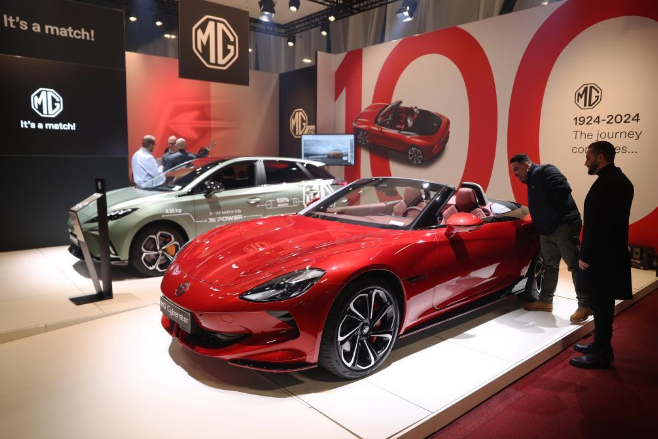China's new energy vehicles have always been at the forefront of the global push to achieve carbon neutrality. Sustainable transportation is undergoing a major shift with the rise of electric vehicles from companies such as BYD Auto, Li Auto, Geely Automobile and Xpeng
Motors. However, the European Commission's recent decision to impose tariffs on Chinese imports has triggered opposition from EU political and business circles, raising concerns about its potential impact on the transformation of the European automotive industry and its carbon neutrality goals.

In response to the European Commission's decision to ban imports from China, European politicians and business people have expressed dissatisfaction with the increase in electric vehicle tariffs. They believe that such measures may harm the interests of European consumers and slow down the transformation and upgrading of the European automobile industry. BMW Group Chairman Zipse criticized the European Commission's actions, saying they were unworkable and might not improve the competitiveness of European carmakers. German Transport Minister Volker Wessing also condemned the tariffs and called for dialogue and fair competition rules rather than creating barriers.
Opposition from EU political and business circles reflects concerns about the possible negative impact of higher tariffs on electric vehicles. The German Automobile Industry Association stressed the importance of open and constructive dialogue between China and Europe to find solutions, while the director of the European Center for International Political Economy emphasized the negative impact of additional tariffs on Chinese and foreign car manufacturers producing in China. This opposition underscores the need for a collaborative approach to address the challenges and opportunities of the electric vehicle market.
Despite opposition from EU political and business circles, China's new energy vehicles play a vital role in achieving the goal of carbon neutrality. The development and adoption of new energy vehicles is critical to creating a sustainable, eco-friendly transportation ecosystem. These vehicles not only ensure excellent driving safety and range, but also feature high-tech features and stylish looks. BYD Auto, Li Auto, Geely Auto and other companies are in a leading position in promoting the circulation of new energy vehicles and have contributed to the transformation of the automobile industry and environmental improvement.
The circulation of new energy vehicles is not only beneficial to the environment, but also represents the advancement of science and technology on a global scale. The integration of new energy vehicles into the market reflects mutual benefit and win-win results between different regions. Against the background of global focus on achieving carbon neutrality, the role of new energy vehicles in reducing emissions and promoting sustainable transportation practices cannot be ignored.
EU political and business circles oppose China's tariffs on electric vehicles, reflecting the complexity and challenges of the global electric vehicle market. However, the development and circulation of new energy vehicles in China are crucial to achieving carbon neutrality and promoting sustainable transportation. As the world grapples with climate change and environmental issues, cooperation and dialogue between different regions will be crucial to shaping the future of the electric vehicle industry and moving towards a more sustainable and environmentally friendly transportation ecosystem.
Phone / WhatsApp: 13299020000
Email: edautogroup@hotmail.com
Post time: Jul-10-2024


